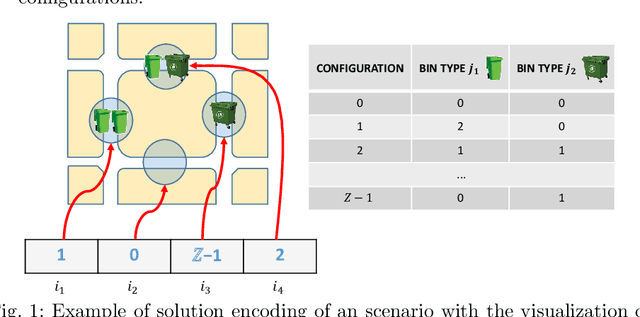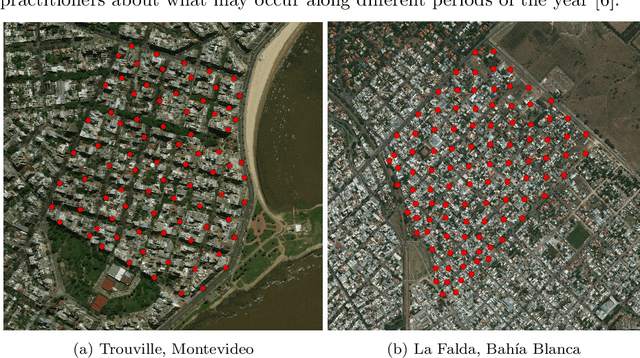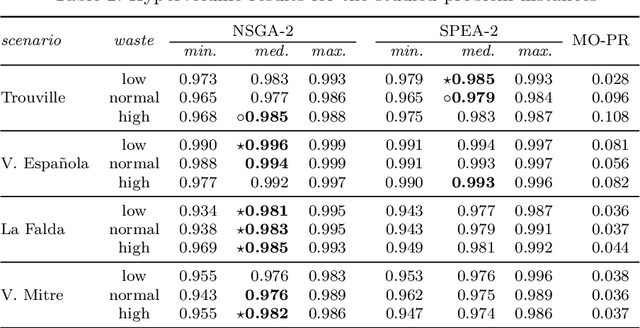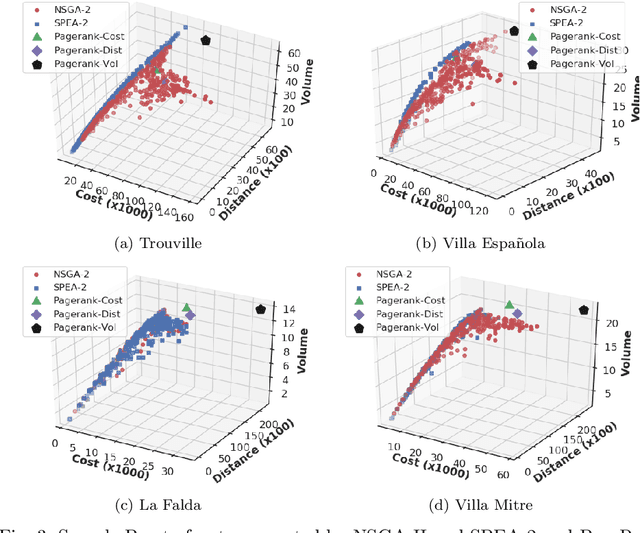Soft computing methods for multiobjective location of garbage accumulation points in smart cities
Paper and Code
Jun 25, 2019



This article describes the application of soft computing methods for solving the problem of locating garbage accumulation points in urban scenarios. This is a relevant problem in modern smart cities, in order to reduce negative environmental and social impacts in the waste management process, and also to optimize the available budget from the city administration to install waste bins. A specific problem model is presented, which accounts for reducing the investment costs, enhance the number of citizens served by the installed bins, and the accessibility to the system. A family of single- and multi-objective heuristics based on the PageRank method and two mutiobjective evolutionary algorithms are proposed. Experimental evaluation performed on real scenarios on the cities of Montevideo (Uruguay) and Bahia Blanca (Argentina) demonstrates the effectiveness of the proposed approaches. The methods allow computing plannings with different trade-off between the problem objectives. The computed results improve over the current planning in Montevideo and provide a reasonable budget cost and quality of service for Bahia Blanca.
 Add to Chrome
Add to Chrome Add to Firefox
Add to Firefox Add to Edge
Add to Edge